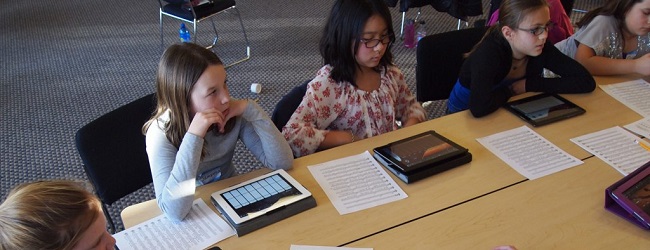Do you get the most from your students’ love of social media? US Journalist Kayla Matthews discusses the best ways in which Twitter et al can be used to raise school pride and activity.

You’ve probably used social media to send class updates, event invitations and other school-related news. You may have also had to compete with Twitter and Instagram for your students’ attention. But did you know social media can also be the perfect platform for boosting school engagement and awareness?
What can bespoke quizzes offer the classroom? School librarian and trained quiz writer Kate Barton discusses how best to go about creating these activities for your classroom.

For over six years I’ve used an educational software program which quizzes school students on books they have read. The quizzes are designed to measure to what extent readers have understood the books, and ensure that their choices are both enjoyable and suitably challenging for them.
My name is Ira Cross, Jr. and I am an elementary school teacher in Columbus, Ohio in the U.S. I am ecstatic to have recently finished my first year of teaching! I am very humbled and excited to have the opportunity to write this article, and have been told I have this fiery energy about me that fits teaching so perfectly, and it is rewarding when my excitement is noticed. I am always looking for, and thinking of, ways to show my passion and enthusiasm. One way that I love to share this energy with my students is by hosting game shows and other activities to review information taught and discussed.
Recently, I was reminded of Baz Luhrmann's chart-topping single from 1998 called ‘Wear Sunscreen’. The song itself was based on an article written by Chicago Tribune Pulitzer Prize winning journalist Mary Schmich. Schmich wrote that "inside every adult lurks a graduation speaker". It got me thinking about what advice I would give to NQTs and others about to embark on a career in teaching... So, here goes.
Teaching in Japan has given me a plethora of new experiences, but I didn’t expect to see such a fundamentally different style of education. Tokyo Drift lied about schools in Japan. The students don’t use laptops or phones in school. They use pencils and erasers, they grade their own assignments, and can be trusted to sit in an hour of study without adult supervision.
This article is about how simple dances can be used to improve student learning about complex cellular processes. The dances are easy to follow and bring complicated topics to life. They help students learn about processes and terminology which they might otherwise find difficult, dry or hard to remember. The dances afford a multisensory approach to learning; they are a fusion of art and science and a blend of fun and serious biology.
Most staff rooms will be home to a widely-diverse range of reading habits and tastes; as adult readers, we all know there’s no such thing as good or bad readers – or in fact good or bad books. We know it’s not about measuring people by their reading skills, or the number of prizewinning books they read. It’s simply about what we each, as individuals, like to read and how it makes us feel. We can have the most dismal reading experience from a book that has been praised to the roof tops – and equally we can have the best experience from something that others might consider to be ‘trashy’, ‘lightweight’ or ‘inferior’. In the end, the best book is the world is the one we, ourselves, like best – and that can change by day, by week or by year.
When it comes to the final days of the last term before summer, it’s good to have fun activities in mind. Instead of sticking on Ice Age 3: Dawn of the Dinosaurs, consider what different websites might offer. Cricksoft’s Danielle Bayes gives her top resources on making enjoyable end-of-term activities.

From previous experience, the last week or two of the school term is when the timetable can become a little looser than usual, and teachers can easily find themselves with the odd 30 minutes in the day with nothing planned.

A community-driven platform for showcasing the latest innovations and voices in schools
Pioneer House
North Road
Ellesmere Port
CH65 1AD
United Kingdom